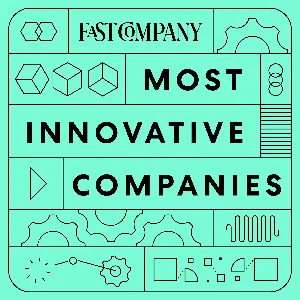Podcast Summary
Supporting Female Founders in Emerging Markets: Organizations like Village Capital and the IFC are using unique investment processes to increase diversity and reduce gender bias in their portfolios, leading to more funding for female founders in emerging markets.
Closing the gender financing gap for female founders in emerging markets is a significant issue, with startups led by women receiving only 11% of total seed financing in these regions. However, organizations like Village Capital are making progress by using unique investment processes, such as peer review, to mitigate gender bias and increase diversity in their portfolios. The International Finance Corporation (IFC) also recognizes this issue and is investing and managing funds to support emerging managers and impact in frontier markets, with a focus on female founders. Village Capital's data shows that their portfolio is more diverse than the average seed stage portfolio, with 46% of companies led by women. This peer review process has been effective in reducing gender bias and increasing diversity in their investments. It's important to continue these efforts to support and invest in female founders in emerging markets to bridge the gap and provide equal opportunities for growth and success.
Underinvestment in Female-Led Companies: Despite efforts to address the gender investment gap, female-led companies continue to receive less than 10% of total investments globally. Female investors influence more capital towards female investees, suggesting a network effect. Addressing this issue requires a multifaceted approach and industry-wide collaboration.
The global private equity and venture capital industry continues to significantly underinvest in female-led companies, with women receiving less than 10% of total investments in the US, Europe, Asia, and Africa. This issue is not unique to any specific market, and there is no clear solution or market that has successfully addressed this imbalance. The International Finance Corporation (IFC) identified the need to understand the root causes and potential solutions through research. Their findings revealed that female investors do influence more capital towards female investees, indicating a network effect. The IFC and other organizations have been working to address this issue in various ways, including encouraging more female investors and addressing the investor universe. However, it's important to note that this is a complex problem that requires a multifaceted approach and cannot be solved by individual actions alone. The industry as a whole must work together to make a significant impact.
Female founder's journey to secure funding for her first-of-its-kind business: Despite facing rejections due to novelty and age, the speaker learned valuable skills like objective evaluation and storytelling through a unique accelerator program, ultimately securing her first funding and later becoming a VC herself.
Securing funding as a female founder, especially for a first-of-its-kind business, can be a significant challenge. The speaker, a female founder herself, shared her experience of trying to raise capital for her company, Piggyvest, in Nigeria. She encountered numerous rejections from local VCs due to the novelty of her business and her relatively young age. It took her about a year to secure the first funding of $50,000 from Village Capital in June 2017. The Village Capital Accelerator program was a unique experience for her. Founders were required to objectively evaluate each other for investment, instead of pitching directly to investors. This process helped her understand investor readiness and the importance of storytelling. Additionally, she learned to take a better view of someone else's business by asking the right questions. These key takeaways proved valuable when she later became a VC herself. Overall, the gender financing gap persists due to various factors, including skepticism towards new and unconventional business models and underestimation of young founders.
Accelerators help women-led businesses raise capital: Accelerators like Village Capital and IFC reduce gender bias and improve investment opportunities for women entrepreneurs, contributing to closing the funding gap.
Accelerator programs, like those run by Village Capital and IFC, can help level the playing field for women-led businesses in terms of raising capital. The first reason for this is that entrepreneurs are effective judges of potential investment opportunities, as shown by the performance of companies selected for these programs. Second, these programs have been found to mitigate gender bias in the selection process. However, more research is needed to fully understand the role of accelerators in addressing the persistent funding gap for women entrepreneurs. The findings from Village Capital's research with IFC and the World Bank Gender Innovation Lab are particularly noteworthy due to the significant difference in performance of their portfolio companies compared to the market norm. By examining the data from various accelerator programs, it was found that certain factors influence investors' perceptions of opportunities, and that some of these factors may be biased against women. Understanding these biases and designing programs to mitigate them can help accelerators play a crucial role in addressing the funding gap for women entrepreneurs.
Funding gap for female-led startups after acceleration: Despite equal performance, female-led startups receive less funding post-acceleration than male-led ones. Researchers are exploring reasons and potential interventions to close this gap.
Male-led startups experience a significant increase in funding post-acceleration, whereas this same effect is not observed for female-led startups. This trend was consistent across various accelerators and a large data set. The researchers are currently investigating why this delta exists, with potential interventions including shifting investor focus from risk to reward or progress over time against milestones, and adhering more strictly to objective investment criteria. By understanding the underlying causes, they hope to eliminate this disparity and create a more level playing field for female-led startups in the accelerator program.
Lack of diversity in VC and PE industries leads to biased investment decisions: Efforts are being made to address gender imbalance in VC and PE industries, including the 2X initiative, but progress is slow and more female leaders are needed to ensure diverse investment decisions
There is a significant lack of diversity, particularly among female leaders, in the venture capital (VC) and private equity (PE) industries, leading to biased investment decisions. However, there are efforts being made to address this issue, with more firms adding female partners and intentionally seeking out female-led companies for investment. The 2X initiative is a market-led effort to deploy more capital to women-led companies, with a goal of $15 billion in financing over the next 5 years. While progress is being made, it's still slow going, and it's not uncommon for VC and PE funds to have all-male teams. Odenayo, a former podcast guest, is now working on the other side of things as an investor with First Check Africa, focusing on increasing access to funding for women in tech in Africa.
Women in tech startups face funding challenges due to under-representation: Initiatives like FastCheck provide early funding and resources to women-led or diverse teams, helping close the funding gap and ensuring women founders are not overlooked or undervalued.
The under-representation of women in tech startups in Africa is not due to a lack of ideas or potential, but rather a lack of early funding and resources. This issue is perpetuated by a "brewing culture" in which funding opportunities are often limited to environments where women are under-represented. As a result, women-led startups often struggle to attract follow-on funding and are left behind in the pipeline. To address this issue, initiatives like FastCheck have emerged, providing early funding and resources to women-led or diverse teams, enabling them to build and grow their startups. By providing women with the necessary resources and support, we can help close the funding gap and ensure that women founders are not overlooked or undervalued. Additionally, it's crucial for those in positions of influence to advocate for women founders and fight for their fair valuation in the funding process.
Gender funding gap worsens in late-stage investments: 5% of late-stage capital goes to women-led companies, and women-led firms are more likely to lose their female founders post-investment, perpetuating the gap. Investors can support women-led companies throughout growth and retain their female leadership to close the gap.
The gender funding gap not only persists but worsens as we move from early-stage to late-stage investments. At the seed and accelerator stage, a small portion of capital goes to women-led companies. However, this percentage drops significantly by the time we reach growth equity, where only 5% of the capital is allocated. This issue is compounded by the fact that women-led companies are more likely to experience a change in CEO post-investment, with male CEOs being appointed more frequently than their female counterparts. This cycle perpetuates the problem, as companies that receive funding but lose their female founders during growth stages are less likely to be represented in the investment landscape. To address this issue, investors can focus on supporting women-led companies throughout their growth and ensuring that they retain their female leadership post-investment. Additionally, building a pipeline of talented women who can grow into senior management roles and increasing the number of female-led companies can help close the gap.
Investors can broaden teams and portfolios to promote gender diversity: Investors can make a difference by hosting master classes, creating guides, and involving diverse stakeholders to increase gender diversity in startups and expand the pool of potential female founders.
Investors can make a difference in promoting gender diversity by intentionally working to broaden their teams and investment portfolios. This can be achieved through various means, such as hosting master classes, creating guides for other investors, and involving diverse stakeholders in investment decision-making. Although there have been some successes with this peer-to-peer model, there are still barriers to its widespread adoption, including fear of loss of control. It's important for investors to recognize the potential impact of their actions and take steps to increase the number of women in the startup ecosystem, as this will expand the pool of potential female founders for the future.
Addressing bias in investment industry: Include diverse voices, use objective criteria, balance warm introductions, and increase diversity in investment teams to promote equal opportunities in investment ecosystem
Addressing bias in the investment industry requires a multi-faceted approach. While relying on experts, such as entrepreneurs, to evaluate opportunities is important, it's also crucial to find ways to include diverse voices in investment decision-making. This can be achieved through objective criteria, milestone-based processes, and reducing the reliance on warm introductions. However, eliminating warm introductions entirely can present challenges, particularly for underrepresented founders who often rely on them to gain access to investors. Therefore, striking a balance is necessary. Additionally, increasing diversity in investment teams is crucial, as people tend to invest in those who share similar backgrounds. Overall, it's essential to continue exploring creative solutions to overcome inherent biases and promote equal opportunities in the investment ecosystem.
Promoting diversity in investment decision-making: Encourage diverse teams and balanced portfolios in all funds for a more inclusive investment landscape
Promoting diversity in investment decision-making is crucial for balancing capital allocation and preventing biases. This can be achieved by including people of color, women, and members of the LGBTQ community in the decision-making process. However, it's not just up to underrepresented groups to make a difference. Investors, particularly Limited Partners (LPs), have a significant role to play in insisting that the funds they invest in have diverse teams. It's not enough to make one investment in a female-led fund and consider the issue resolved. Instead, every fund should strive for a balanced portfolio, regardless of who leads it. This approach benefits everyone by preventing limited thinking and fostering a more inclusive investment landscape. Let's continue supporting new female-led funds, but let's also encourage all funds to prioritize diversity in their teams and portfolios. Together, we can bring about meaningful change.






